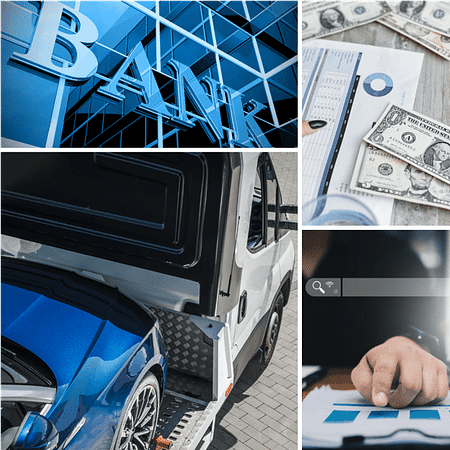When you're facing financial difficulties, one of the most distressing situations can be having your car repossessed. Repossession occurs when the lender takes possession of your vehicle due to non-payment or defaulting on the loan. This blog post will guide you through the process of car repossession, highlighting its consequences and providing useful insights to help you navigate through this challenging situation.
Section 1: Understanding Car Repossession
Car repossession is a legal process that occurs when you fail to make timely payments on your auto loan. The lender has the right to take back the vehicle to recover their losses. Repossession laws may vary by jurisdiction, but the general process involves notifying the borrower, repossessing the car, and selling it to offset the debt.
Section 2: Consequences of Car Repossession
2.1 Damage to Credit Score:
Car repossession can significantly damage your credit score. A repossession remains on your credit report for up to seven years, making it difficult to secure future loans or obtain favorable interest rates. This negative mark can affect your financial stability for years to come.
2.2 Legal and Financial Obligations:
After repossession, you may still be responsible for the outstanding loan balance if the sale of the repossessed vehicle doesn't cover the debt. Additionally, the lender may charge repossession and storage fees, which can further worsen your financial situation.
2.3 Limited Transportation Options:
Losing your vehicle can greatly impact your daily life. Without a car, commuting becomes challenging, and you may need to rely on public transportation or alternate arrangements, which can be inconvenient and time-consuming.
Section 3: The Vehicle Repossession Process
3.1 Default Notice:
Before repossession, lenders typically send a default notice, notifying you of your payment delinquency. This notice provides an opportunity to rectify the situation by catching up on missed payments or negotiating a repayment plan.
3.2 Repossession:
If you fail to resolve the delinquency, the lender will send a repossession agent to seize the vehicle. They have the legal authority to take possession of the car, even from your property, without your consent.
3.3 Notice of Sale:
After repossession, you should receive a notice of sale, informing you of the lender's intent to sell the vehicle. This notice may provide details about the auction or sale process, allowing you to bid on or repurchase the vehicle in some cases.
3.4 Auction or Sale:
The lender typically sells the repossessed vehicle through an auction or private sale to recoup their losses. The sale proceeds are applied to the outstanding loan balance, and you may still be responsible for any remaining debt.
Section 4: Dealing with Car Repossession
4.1 Communicate with the Lender:
If you're facing financial hardship, it's crucial to contact the lender as soon as possible. They may be willing to negotiate a modified payment plan or other arrangements to help you avoid repossession.
4.2 Seek Legal Advice:
Consider consulting a financial advisor or an attorney who specializes in consumer law. They can provide guidance on your rights, potential defenses against repossession, and possible solutions to your financial struggles.
4.3 Rebuilding Your Credit:
After repossession, focus on rebuilding your credit. Paying bills on time, reducing debt, and establishing a positive payment history can gradually improve your credit score over time.
Conclusion
Experiencing car repossession can be an overwhelming and stressful ordeal, with significant financial and legal consequences. By understanding the process, exploring alternative options, and seeking professional advice, you can navigate the challenges more effectively and work towards rebuilding your financial stability.
If your vehicle has been repossessed in the past or if you have experienced previous repossessions and are in search of financing options for a new vehicle, West Mitsubishi is here to assist you. Reach out to one of our knowledgeable Financial Advisors to explore the available options tailored to your situation. We take pride in our track record of assisting numerous customers who have faced repossessions in rebuilding their credit through our vehicle loan program.
West Mitsubishi • westmitsubishi.com • (530) 865-3505







